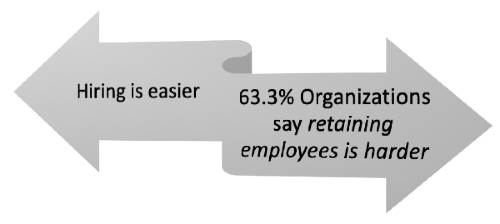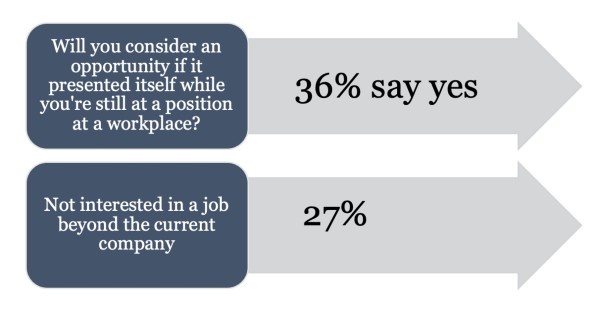5 Key Benefits of Employee Engagement
The dictionary meaning of employee engagement is an emotional connection of an employee towards the organization. This emotional connection influences an employee’s behavior or how much effort they’re going to put in work-related tasks. But why exactly is employee engagement important? The five ways as to why must firms engage their employees are listed below:
Increased Productivity
Employees who’re highly engaged within a firm can produce high quality work because they tend to be personally motivated and invested in an organization. Their performance is quintessential for them not only for their career growth, but also for the organizational growth. Engaged employees strike an equilibrium with their personal goals, team goals and business goals. This in turn, leads to higher productivity. This is backed by a Gallup State of the American Workplace study which boils down to the fact that disengaged employees can cause a loss of U.S. $483 billion to $605 billion annually, in terms of productivity.
Leads to employee retention

Employee retention seems to be a bigger problem than hiring, says a research in which firms with employee strength 50-500 were studied. As much as 81% of businesses agree that employee turnover is a costly affair. Retaining employees requires not just the basic hiring hygiene, but also ensuring employee loyalty towards a firm. This comes with employee engagement.
Ensures employee loyalty
An engaged employee is the one who feels emotionally charged to perform for the organization. From the aforementioned point of retention, there arises another point- loyalty. Look at this diagram below.

Ceridian report says that there are several factors which influence employee loyalty through career stages. These factors in all make up for employee engagement, which in turn can lead to loyalty of employees. Employees who do not enjoy their job or are unable to utilize their strengths in an organization are more likely to leave for other opportunities within a year of their joining.
Better customer experience
Engaged employees are extremely motivated and care for their organizations like their own. Clients/ customers of a business are their own. When employees are engaged within a firm, they treat customers well. This can lead to great customer experience. Employee engagement goes hand in hand with customer experience. Engaged employees help businesses in achieving 10% higher customer scores.
Promotes positive work culture
A lot of companies bet on high-pressure work and cut-throat competition to encourage employees to achieve better business results. While it may work well with some employees, it can often lead to stress and negative work culture. Engaged employees, on the contrary, are motivated within a firm and bring in positive vibes to work culture without feeling under the weather. Such employees also motivate others around them and prove to be more productive. Meanwhile, actively disengaged employees will not only deteriorate the work environment, but will also bring down the entire company culture.
The upside of employee engagement cannot be understated. Motivating employees to reach a stage of willingness and psychological investment can fetch positive outcomes for any organization.




